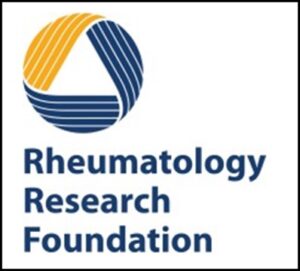Participation in RISE is available to ACR/ARP members and their practices as a free member benefit. It can be used seamlessly for completing required federal quality reporting and improving reimbursement. Investigators can request use of RISE’s rich source of information for research, which can be made available for a fee, depending on the research project’s scope and components. More information, including the application for using RISE data for research projects, can be found at https://rheumatology.org/about-rise-registry.
Funding Research
Although research is based on novel ideas, it also requires funding. The National Institutes of Health (NIH) is the largest public source of rheumatology research funding in the U.S. The ACR engages in meetings with NIH leadership within the National Institute of Arthritis and Musculoskeletal and Skin Diseases (NIAMS), the National Institute of Allergy and Infectious Diseases (NIAID), the National Institute of Aging and the Office of Autoimmune Disease Research, with a goal of discussing our shared priorities of advancing research that impacts patients with rheumatic diseases. In recent years, the NIH budget has faced challenges that impact the payline levels of grant applications that the NIH institutes and offices have been able to provide. The ACR Government Affairs Committee and RheumPAC play a critical role in advocacy with Congress for federal funding to support rheumatology research.
No discussion of rheumatology research would be complete without the inclusion of our amazing Rheumatology Research Foundation. Our Foundation was established by the ACR in 1985 and has grown to become the largest private funding source for rheumatology research in the U.S., and second only to the NIH in overall funding support. The mission of the Foundation is to advance research and training to improve the health of patients living with rheumatic disease. As of May 1, 2024, the Foundation had funded more than 4,690 awards directed toward this mission. An important aspect of Foundation research awards is that these fund not only specific innovative research projects, but also career development, including NIH bridge awards, adult and pediatric research fellow awards, and scientist and investigator awards.
Foundation funding also supports workforce expansion of rheumatology professionals through awards focused on recruitment and education/training. These awards range from outreach to undergraduates, medical students, rheumatology professionals and those under-represented in medicine, as well as fellowship training awards and clinician educator awards.




